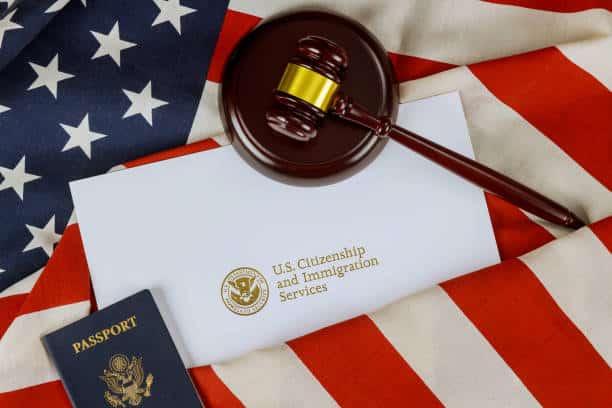From the California Journal Business Newswires.
Online gaming platforms have become popular today all over the world because of convenience.
While betting is adventurous, considering how today’s youths are interested in gaming and are indulging in varieties of sports, appropriate legislation is necessary for every country.
In America, legal limitations have curtailed the gaming sector over the years. Yet online sports betting has taken the world by storm. It is a $40 billion industry, a thriving sector full of business opportunities that contribute to the economy. As a result, since 2018, sports betting is gaining a strong — and legal — foothold in the U.S.
Embracing the numerous opportunities and endless possibilities of online gaming creates millions of jobs and cash flow domestically. There are several achievements in the bid to legalize gaming in the states. So far, 42 states have or are in the process of legalizing sports betting.
–Nevada has enjoyed a legal monopoly of sports betting since 1949. Nevada was the pioneer state to regulate sports betting, and it was grandfathered after the Professional and Amateur Sports Protection Act (PASPA) was formed to prohibit future expansion.
–On May 14, 2018, the Supreme Court of the United States lifted the federal law that banned single-game wagering. Each state is allowed to set its rules for online sports betting if the congress doesn’t pass new legislation.
—
“After the famous ruling, 11 states legalized sports betting: Delaware, Illinois, Indiana, Iowa, Mississippi, Montana, New Hampshire, North Carolina West Virginia, Arkansas and New Jersey, which launched Online Sports Betting NJ.
–Seven states have passed laws to regulate sports betting, but a launch date is pending.
–Twenty-four states have pending legislation.
–Eight states have not taken any action to legalize sports betting. The list includes Alaska, Idaho, Nebraska, Wisconsin, Wyoming and Utah.
 Potential Niches for Economic Growth
Potential Niches for Economic Growth
Sports betting is multifaceted in terms of financial avenues that bring money into the economy.
Continued legislation on betting by different states is a significant step to stabilize gaming entrepreneurship and generate money.
Betting benefits the bookmaker, customers, mass media, print media, social media, and the government.
This is how it works:
Advertisement. Many bookies are competing for punters online, including bet365, Betfair, betway, Unibet, and 888sport. They are forced to always improve their products to compete against each other because there are reviews like this one available online about nearly every popular bookmaker, so each of them has to stick out in a positive way.
The best way to popularize their products is by doing ads across the media. The more a betting company invests in advertisements, the more customers win.
Firms also keep their clients posted on the latest products that are tailored to their needs.
The bookmarks — America’s NBA and NFL as well as Europe’s Bundesliga, FIFA World Cup, Serie A, and EPL — incorporate all types of the audience into e-sports.
Substantial expenses on ads generate a considerable amount of revenue into the economy.
As a customer it can become difficult to choose the right bookmaker out of all the well-known names internationally. Therefore soccerbetting365.com can be convenient. Here, you will find tests and reviews of various bookies like 888sport review.
Sports betting transactions. Bookmakers offer flexible deposit and withdrawal methods to cater to all customers. Bettors can transact via credit/debit cards, Astropay, PayPal, ecoPayz, Maestro, Skrill, QIWI, Neteller, Yandex and WebMoney thanks to the endless list of options. The government benefits from these money transfers.
Contribution to the GDP of the U.S. Recent research by NJGames points out that the annual expenditure by sport betting bookmarks and enthusiasts in the U.S. is projected to be higher than $41 billion. Fiscal experts anticipate that legal sports betting will contribute more than $22 billion to the gross GDP of the U.S. and more than 86,000 people will reap direct income from gaming. Local, state and federal taxes are expected to generate $8.4 billion. As betting policies are formulated to regulate gambling ethics, participation will likely be promoted to increase national revenue.
Labor. A study carried out by Oxford Economics on behalf of the American Gaming Association reveals the considerable potential labor income from sports betting. Legalized sports betting is expected to bring a direct labor income of more than $4 billion. Indirect labor is expected to bring over $7 billion, benefiting approximately 130,000 people. Sports betting should be supported fully to create more business opportunities to cut down on unemployment.
The Wrap. Betting is fun as a pastime and a way of making money. Online gaming is fashionable and it has adopted technology to ease the adventure. The online marketplace has drawn the attention of real casino gamblers and newbies. Sports is the most critical social construct of bringing people from across the world together. Betting firms, in conjunction with software developers, have harnessed technology to come up with different products that are attractive to prospective punters.
Initially, gambling was limited by law, yet favorable legislation opens doors of revenue for economic growth.




